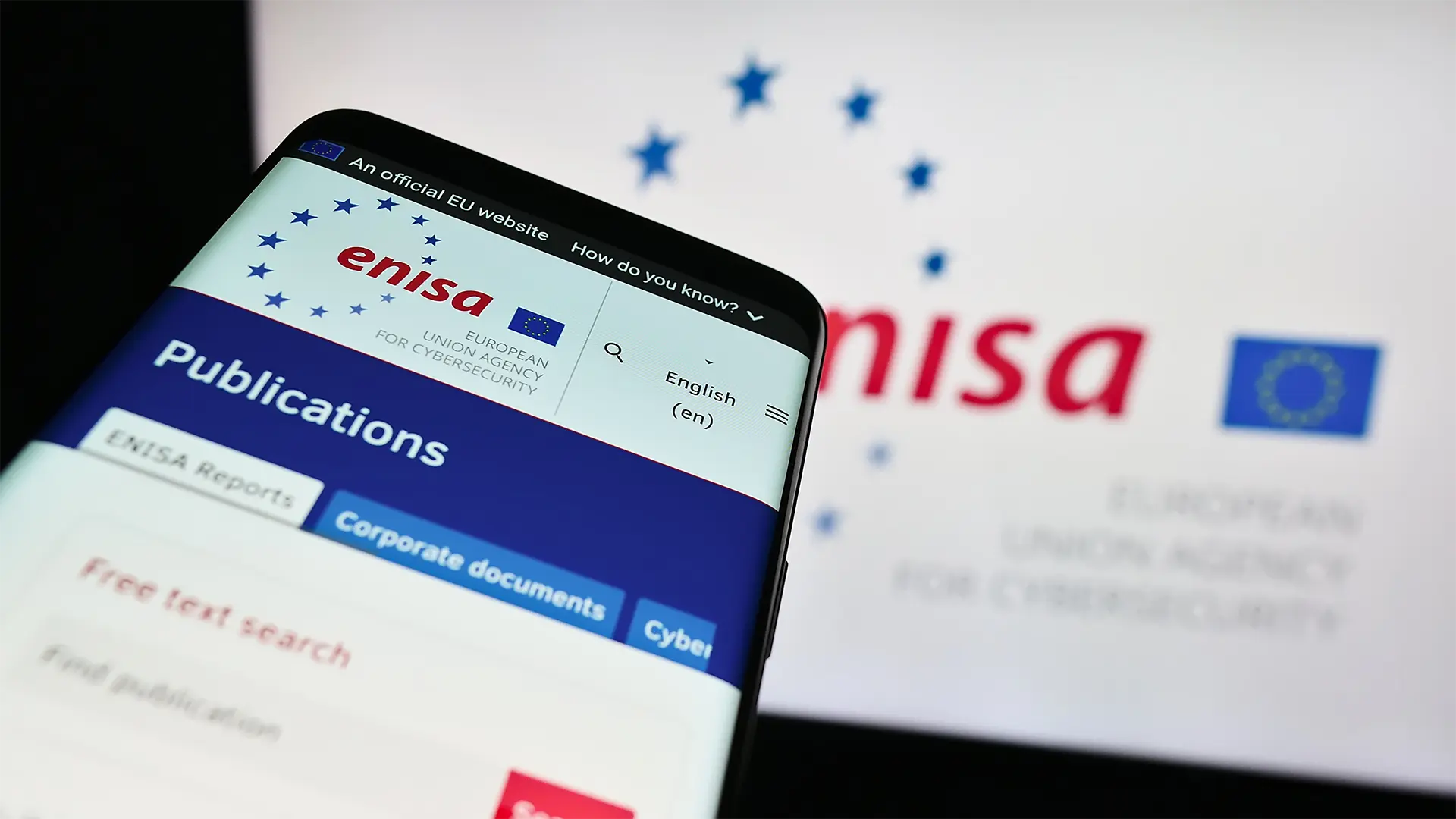Table of contents
- Mission and objectives of ENISA
- Cyber security Act and security certifications
- ENISA cyber security certification
- The importance of cyber security in the digital age
- The future of cyber security in Europe
The European Union Agency for Cybersecurity (ENISA) is a key entity in the European digital ecosystem tasked with improving the level of cyber security within the European Union (EU). Established in 2004 and based in Athens, Greece, ENISA plays a crucial role in strengthening network and information security in EU member states.
Mission and objectives of ENISA
ENISA’s primary mission is to ensure a high level of cyber security within the EU by supporting member states in preventing and managing cyber threats. The agency works closely with national cyber security authorities, EU institutions, and other stakeholders, providing technical support and strategic advice.
ENISA is committed to improving cooperation between member states and promoting the sharing of best practices. The agency focuses on various areas, including the protection of critical infrastructures, the security of communication networks, and the resilience of ICT systems.
Cyber security Act and security certifications
One of the main legislative tools that strengthen ENISA’s mandate is the cyber security Act, which came into force in 2019. This legislative act expanded ENISA’s powers, making it a reference point for cyber security in Europe.
The cyber security Act introduced a European framework for cyber security certifications aimed at ensuring that ICT products, services, and processes are safe and reliable.
ENISA is responsible for defining the EU cyber security Certification Schemes. These schemes provide a mechanism for assessing and certifying the security of ICT products, services, and processes, thereby promoting a safer digital market.
ENISA cyber security certification
Certification schemes and conformity assessment
The main certification schemes managed by ENISA include the Common Criteria and the cloud services certification program.
- Common Criteria
An international standard for ICT product security certification.
- Cloud services certification
A program aimed at ensuring that cloud service providers meet stringent security requirements.
Conformity assessments are carried out by Conformity Assessment Bodies (CABs), which are accredited to perform these evaluations. This system ensures that certified products, services, or processes comply with EU-established security standards, helping to build trust between consumers and businesses.
Collaboration and support to member states
ENISA works closely with EU member states to develop and implement cyber security policies. The agency provides technical and operational support, helping member states enhance their threat management capabilities. Additionally, ENISA organizes cyber security exercises and other training activities to strengthen member states’ preparedness.

The importance of cyber security in the digital age
The agency works tirelessly to protect Europe’s digital infrastructures, contributing to creating a safe and resilient digital environment. The European Union Agency for cyber security not only enhances cyber security levels in Europe but also promotes trust in the European digital economy.
The future of cyber security in Europe
As technology advances, the challenges related to cyber security will continue to grow. The European Union Agency for cyber security remains at the forefront, quickly adapting to new threat scenarios and developing innovative solutions to protect networks and information systems.
Collaboration between ENISA, national authorities, and EU institutions will be essential to address these challenges and ensure a secure digital future for all European citizens.
Recap
The European Union Agency for cyber security is an essential component of the European cyber security strategy.
Through its commitment to improving cooperation among member states, defining rigorous certification schemes, and providing technical and operational support, ENISA contributes to creating a safe and reliable digital environment in Europe.
Cyber security is an absolute priority, and ENISA is at the forefront of ensuring that Europe is prepared to face the challenges of the digital future.
FAQ
- What is ENISA?
ENISA is the European Union Agency for cyber security, tasked with improving cyber security within the EU. - What is ENISA’s mission?
ENISA’s mission is to ensure a high level of cyber security by supporting member states in preventing and managing cyber threats. - What does the cyber security Act entail?
The cyber security Act of 2019 expanded ENISA’s powers and introduced a European framework for cyber security certifications. - What are the EU cyber security Certification Schemes?
They are certification schemes defined by ENISA to assess and certify the security of ICT products, services, and processes. - What is the Common Criteria?
The Common Criteria is an international standard for ICT product security certification managed by ENISA. - What are Conformity Assessment Bodies (CABs)?
CABs are accredited bodies that perform conformity assessments and certify that products, services, or processes meet security standards. - What are ENISA’s main areas of work?
ENISA focuses on protecting critical infrastructures, securing communication networks, and ensuring the resilience of ICT systems. - How does ENISA support member states?
ENISA provides technical and operational support, organizing cyber security exercises and training activities to enhance member states’ preparedness. - Why is cyber security important in the digital age?
Cyber security is crucial for protecting digital infrastructures, preventing cyber attacks, and ensuring a safe digital environment. - What are the future challenges for ENISA?
ENISA must quickly adapt to new threat scenarios and develop innovative solutions to protect networks and information systems in Europe.
